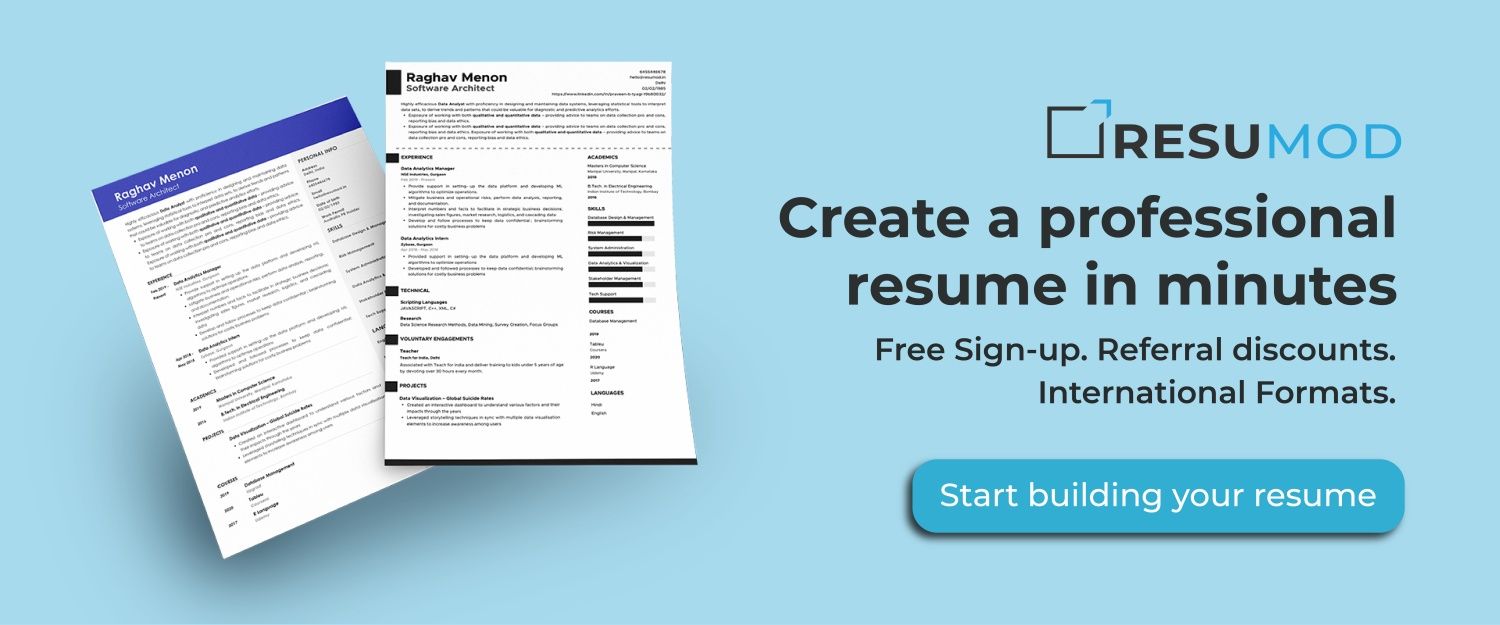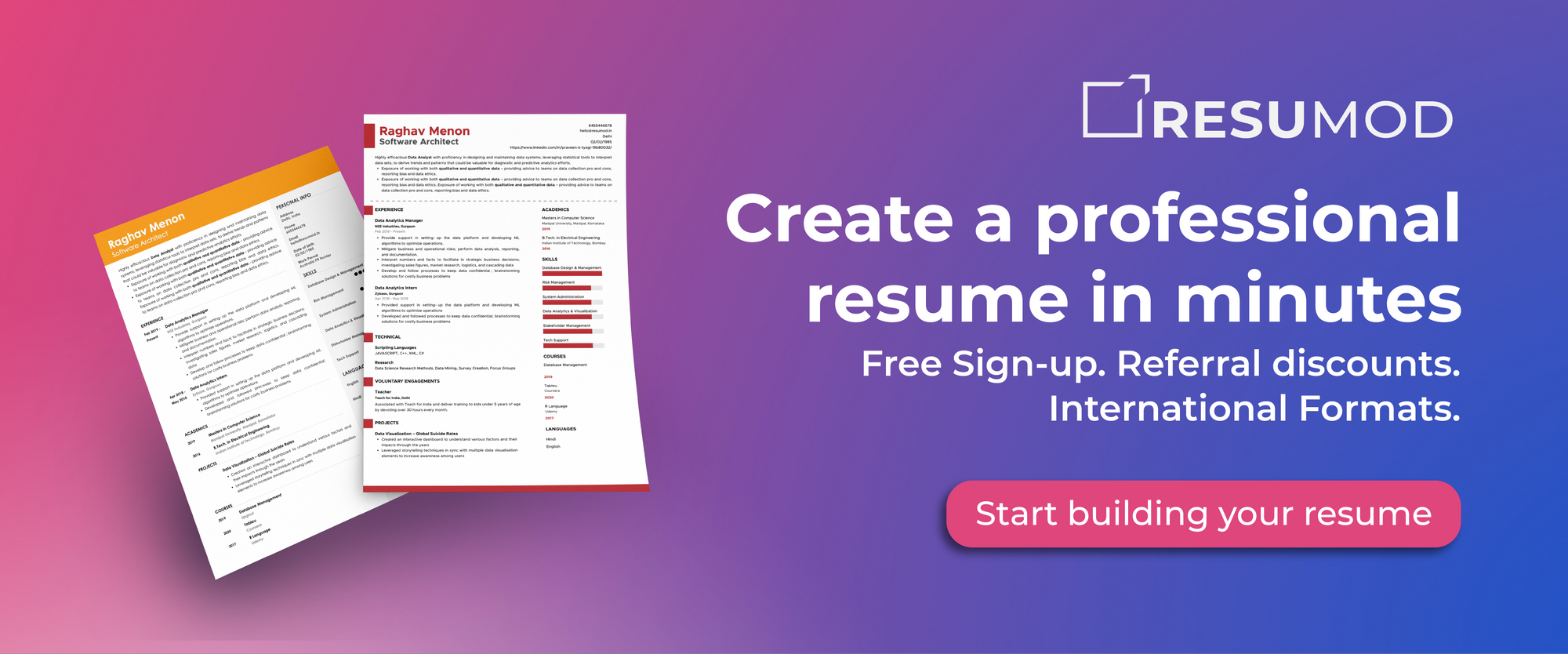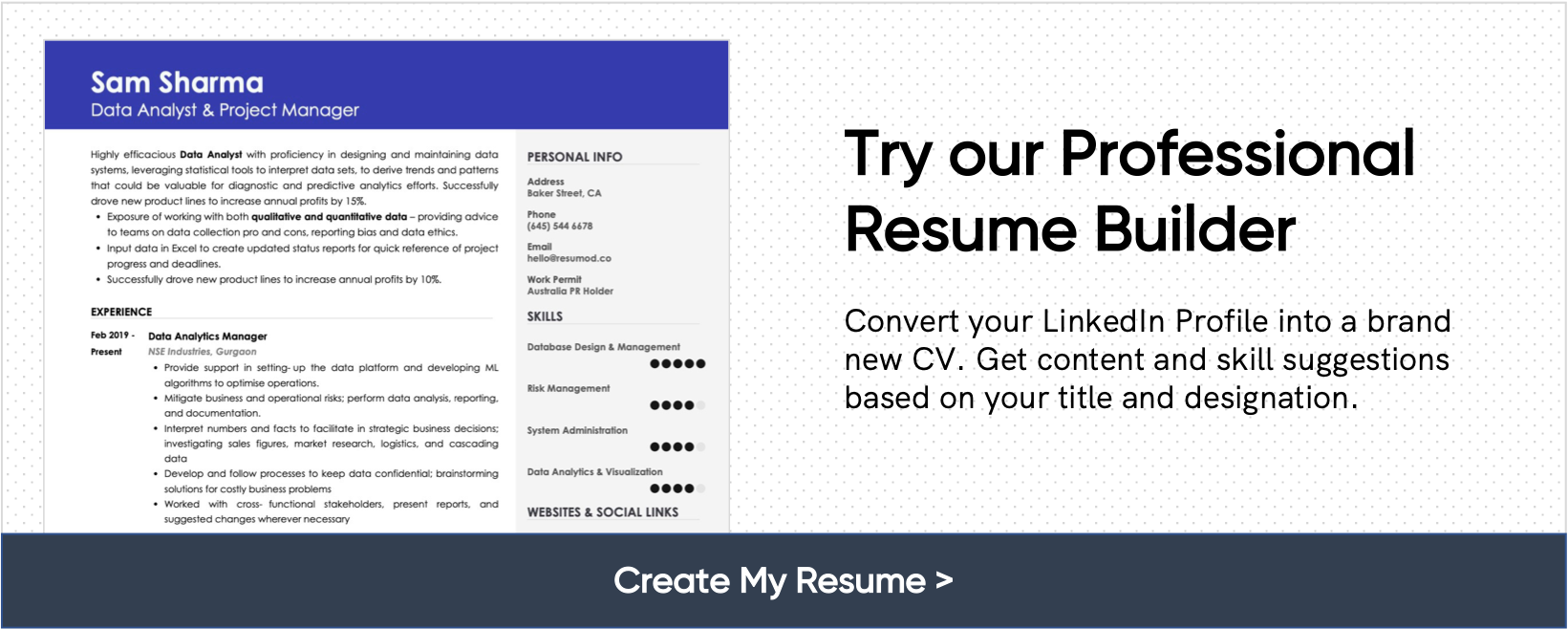2025 Resume Trends: Tips to Make Your Resume Stand Out in Modern Hiring
While traditional resume writing still has its place, innovative approaches are beginning to define the resumes that get noticed.
In today's competitive job market, where countless resumes flood recruiters' inboxes, making yours stand out is more crucial than ever. Imagine this scenario: You’re a Gen Z job seeker, fresh out of college, eagerly scrolling through LinkedIn. You've just seen an exciting job opening that perfectly matches your skills, but here’s the catch: the application deadline is fast approaching, and the competition is fierce. You know that your resume needs to be sharp, clear, and unique to catch the eye of recruiters who might spend only a few seconds reviewing it. How can you make sure your resume doesn’t get lost in the crowd?
In 2025, the resume landscape is evolving, influenced by technology, remote work, and a new wave of job expectations. While traditional resume writing still has its place, innovative approaches are beginning to define the resumes that get noticed. Here are the top trends and tips to make your resume stand out in the modern hiring process.
Focus on Personal Branding
Your resume needs to represent not just your qualifications but also your personal brand. Think of it as a story of who you are as a professional. "Your resume is your first impression," say many career experts; it’s not just about listing job titles - it’s about showing your unique value. Personal branding helps you communicate your skills, personality, and values in a way that feels authentic.
Consider incorporating a personal statement or a professional summary at the top of your resume. This brief paragraph should convey your core strengths, what drives you, and what kind of role you're looking for. For instance, instead of just stating your job title, you could say, "Passionate digital marketing professional with 3+ years of experience in social media strategy, focused on creating content that resonates with Gen Z audiences."
Incorporate Data and Achievements
Recruiters are no longer looking for generic descriptions of your duties. They want to see the impact you’ve made in your previous roles. As companies shift towards a data-driven approach, it’s crucial to highlight achievements that can be measured.
Instead of writing, "Responsible for managing social media accounts," you could say, "Increased social media engagement by 40% through targeted campaigns and content optimization." Numbers not only grab attention but also demonstrate the tangible value you brought to your previous employers.
"Quantifying your success makes your resume more persuasive," says a leading industry expert. "It shifts the focus from just the tasks you completed to the results you achieved."
Leverage Technology with Interactive Elements
Technology is rapidly changing how resumes are evaluated. One major trend for 2025 is the integration of interactive elements. While traditional resumes are static documents, modern resumes are becoming more dynamic. Including QR codes that link to your online portfolio, LinkedIn profile, or a brief video introduction is a great way to make your resume stand out.
For example, imagine submitting your resume with a QR code that links to a short video of you explaining why you’re the perfect candidate for the job. A well-produced video can give recruiters a glimpse of your personality, creativity, and communication skills in ways that words alone cannot.
Additionally, you can incorporate interactive visuals such as infographics or charts that showcase your skills or experience. Tools allow you to easily create these elements. However, be sure to balance creativity with professionalism—too much decoration can distract from the core message of your resume.
Prioritize Soft Skills and Emotional Intelligence
While hard skills and qualifications are essential, soft skills are becoming increasingly important in the hiring process. Companies are looking for candidates who can communicate well, work in teams, and adapt to change—skills that are especially crucial in remote work environments.
In your resume, focus on showcasing your emotional intelligence (EQ) and interpersonal skills. Many employers look for candidates who demonstrate empathy, resilience, and collaboration. "These soft skills often determine how well a person will fit within a company culture," says a seasoned recruiter.
Incorporate examples of how you’ve demonstrated these skills. For instance, you could mention a time when you successfully navigated a challenging project or helped resolve a team conflict. This provides concrete evidence of your ability to work effectively with others, which is something employers value greatly.
Embrace Remote-First Resumes
Remote work is here to stay, and companies are increasingly seeking employees who are comfortable working from anywhere. If you're applying for a remote role, make sure your resume reflects your ability to thrive in a virtual environment. Highlight any previous remote work experience, your familiarity with collaboration tools like Zoom and Slack, and your ability to manage time and work independently.
Additionally, mention your adaptability—employers want to know you can pivot quickly in a fast-paced, remote-first world. For instance, “Adapted to remote work quickly, maintaining productivity and team communication across time zones using digital tools” can be an impressive bullet point.
Customize Your Resume for Each Job
One of the simplest yet most effective ways to make your resume stand out is by tailoring it for each job application. Don’t send the same resume to every employer. Instead, carefully read the job description and adjust your resume to highlight the skills and experiences that align with the company’s needs.
Using keywords from the job posting is crucial, especially as more companies rely on applicant tracking systems (ATS) to filter resumes. By matching your resume with the specific language and requirements of the job, you increase your chances of getting noticed.
Showcase Your Digital Literacy and Tech-Savviness
As technology reshapes the workforce, employers increasingly value candidates who are digitally literate. Proficiency in tools like data analytics software, design programs, and artificial intelligence (AI) is essential. Highlight AI expertise, such as using ChatGPT for content, Tableau for analytics, or AI-driven CRM tools.
Include specific platforms you’ve mastered. For example, “Proficient in Adobe Creative Suite, Google Analytics, Python, and AI-powered tools” communicates your tech skills effectively. Showcasing adaptability to emerging technologies positions you as a future-ready professional, making a lasting impression on recruiters.
Keep It Simple, But Effective
While it’s tempting to add flair to your resume, remember that simplicity often works best. Hiring managers don’t have time to sift through clutter. Keep your resume clear, concise, and well-organized, with distinct sections for your experience, education, skills, and achievements. Use bullet points and headers to make it easy to scan.
The most effective resumes are those that balance creativity and professionalism, highlighting your strengths while ensuring readability.
Conclusion
As we head into 2025, resumes are evolving alongside the modern workforce. Personal branding, data-driven achievements, and a focus on soft skills are just a few of the elements that can help your resume stand out in today’s competitive job market. By leveraging technology, embracing remote-first work, and customizing your resume to match the job, you’ll be on your way to securing the job of your dreams.
Your resume is more than just a list of past jobs—it’s your professional story. Make sure it tells the right one. As many hiring experts say, "A great resume doesn’t just get you hired—it gets you noticed for the right reasons."



